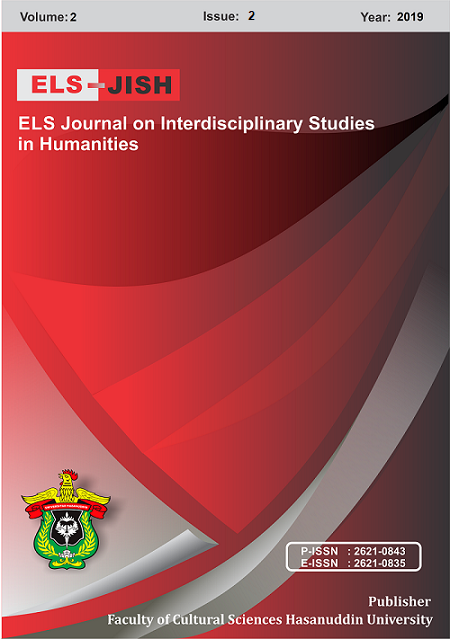Demotivational Factors of Non-English Major Students in Learning English
DOI:
https://doi.org/10.34050/els-jish.v2i2.6306Keywords:
low score, negative orientation, motivation, information system and computer department.Abstract
The low score obtained by the students is one of the factors, which scale down non-English major students ‘motivation in learning English, and vise versa. This case results the students seem to be indifferent to this important lesson. Demotivation is discussed due to its negative orientation and it has direct educational implications. Thus, it seems necessary to investigate and explore demotivational factors in learning English of non-English major students in order to improve the quality of education in Indonesia. The subject of this qualitative case study was learners of information system and computer department in STMIK Bina Adinata, South Sulawesi, Indonesia. A total of 51 students responded to the questionnaire which analyzing 30 items of six demotivational constructs use Guttman scale format and 6 students of the third semester in academic year 2018/ 2019 who got the lowest scores in the last semester represented in-depth interviews to dig deeper their perception about demotivational factors they perceived during learning English at college. The results show that lecturers' inappropriate teaching method, inadequate facilities, grammatically teaching material, lack of students' self-confidence, low score, little chance to practice and lack of students' awareness were the most demotivating factors for non-English major students. This information then can be used as a basic goal setting, method, strategy, and relevant learning materials with the needs of graduates. However, the lecturer is the most important key who can restore students' motivation in English language learning.Downloads
Download data is not yet available.
Downloads
Published
2019-06-30
How to Cite
Pratiwi, W. R. (2019). Demotivational Factors of Non-English Major Students in Learning English. ELS Journal on Interdisciplinary Studies in Humanities, 2(2), 193-205. https://doi.org/10.34050/els-jish.v2i2.6306
Issue
Section
Articles

















